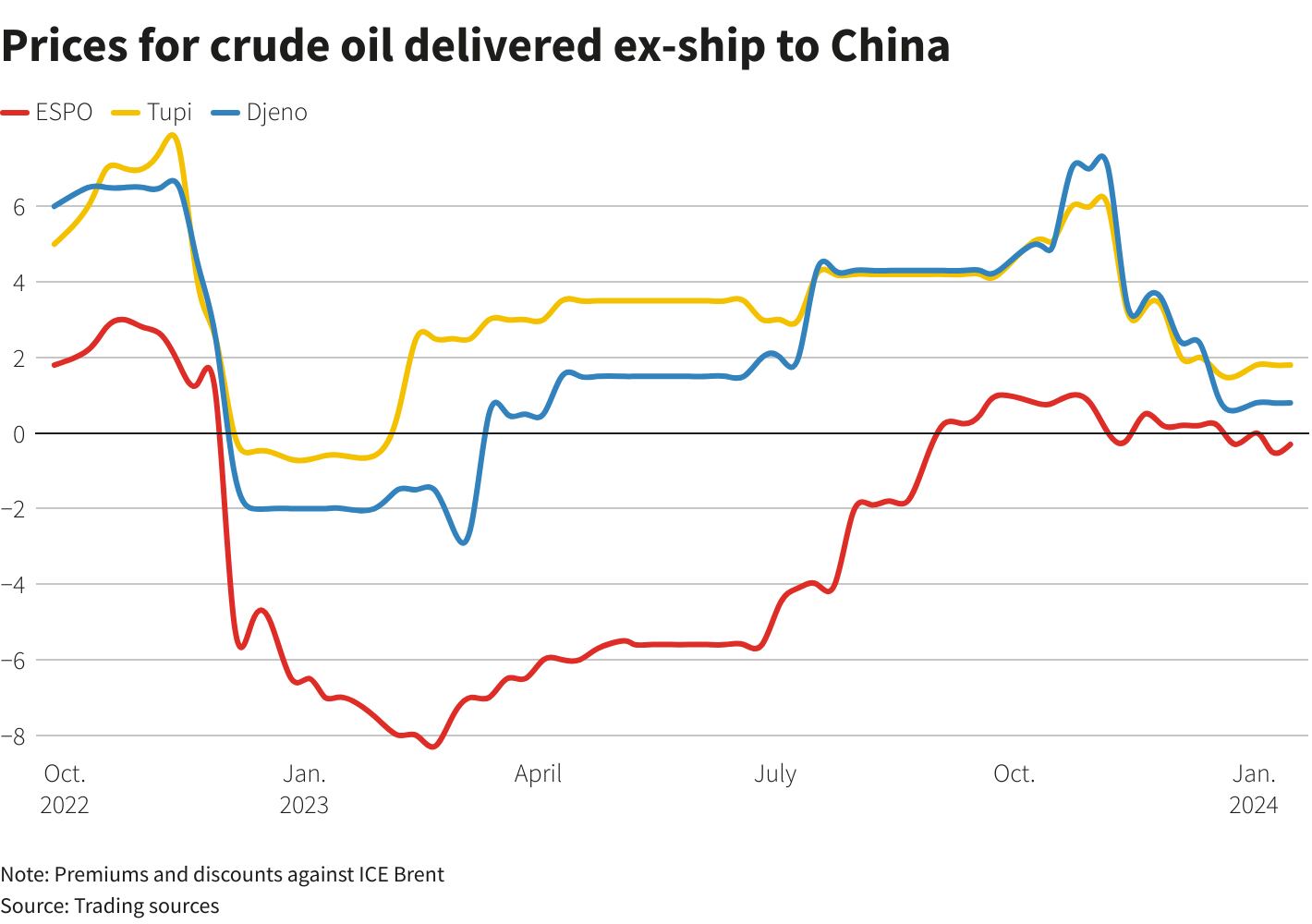In a significant geopolitical maneuver, China has formally rejected the United States" demands to halt its imports of Russian oil, showcasing its steadfast commitment to maintaining energy ties with Moscow despite ongoing global tensions. This decision arises amid a backdrop of intensified scrutiny over China"s foreign policy choices and the broader implications for global energy markets.
Background & Context
The relationship between China and Russia has grown increasingly robust in recent years, particularly in the energy sector. As both nations seek to counterbalance Western influence, China"s reliance on Russian oil has become a focal point of international concern. Following Russia"s invasion of Ukraine in February 2022, the U.S. and its allies imposed sweeping sanctions aimed at crippling the Russian economy. In response, the Biden administration has urged China to distance itself from Russia, particularly by curtailing its energy imports. However, China’s recent refusal to comply with these demands signals a willingness to prioritize its energy security over diplomatic pressures from the West.
Key Developments
According to a report from the Wall Street Journal, China’s government has officially dismissed the U.S. request to cease Russian oil imports, emphasizing its right to pursue energy cooperation that aligns with its national interests. This stance reflects a broader strategy by Beijing to bolster its energy supplies amid rising global prices and supply chain vulnerabilities exacerbated by geopolitical conflicts. As the world"s largest importer of crude oil, China"s decision to maintain its oil trade with Russia not only impacts its domestic energy landscape but also has ripple effects throughout the global oil market.
The implications of this decision are significant. Analysts note that China’s continued imports of Russian oil may undermine the effectiveness of Western sanctions. This development raises questions about the sustainability of the current sanctions regime and the potential for a realignment of global energy trade dynamics. Furthermore, it highlights the growing divide between Western nations and countries that seek to maintain neutrality or bolster ties with Russia in the face of international pressure.
\n\n
Image for China Defies U.S. Oil Demands, Boosts Russian Imports Amid Global Tensions
Broader Impact
The ramifications of China"s decision extend beyond energy markets, touching on strategic military and political alliances. Experts suggest that this move could embolden Russia, allowing it to bolster its economy through continued energy exports to a major global player. This could also lead to a more entrenched partnership between China and Russia, potentially reshaping the global balance of power in favor of a more multipolar world. Historically, similar situations have arisen, such as during the Cold War, when nations aligned themselves based on ideological grounds rather than economic sanctions. The current scenario echoes these historical precedents, where geopolitical alliances are tested against economic interests.
Moreover, China’s defiance of U.S. demands may provoke a more aggressive stance from Washington, prompting further sanctions or diplomatic efforts aimed at isolating Beijing. The recent developments in Ukraine, including Russia’s claims of territorial gains, add layers of complexity to this situation, as the U.S. seeks to support Ukraine while managing its relationships with other global powers.
What"s Next
Looking ahead, the implications of China"s decision to maintain its Russian oil imports will likely play out on multiple fronts. The U.S. may respond with increased diplomatic pressure on other nations to follow its lead in isolating Russia economically, while China may continue to strengthen its ties with Russia, both in energy and other sectors. Additionally, the global oil market may experience fluctuations as traders react to the evolving narrative surrounding sanctions and energy imports.
As both nations navigate this complex landscape, the potential for further escalation remains high. Observers will be closely monitoring the actions of other countries, particularly those in Europe and Asia, as they weigh their own positions regarding energy imports from Russia. The coming months will be critical in determining the future of U.S.-China relations and the broader geopolitical climate as the world grapples with the implications of energy independence and global alliances.

Image for China Defies U.S. Oil Demands, Boosts Russian Imports Amid Global Tensions


![[Video] Heavy clashes and gunfire reported in Baghdad, Iraq](/_next/image?url=%2Fapi%2Fimage%2Fthumbnails%2Fthumbnail-1768342239932-848qsh-thumbnail.jpg&w=3840&q=75)




![[Video] Gunfire between Iraqi security forces and Sadr militias in Baghdad](/_next/image?url=%2Fapi%2Fimage%2Fthumbnails%2Fthumbnail-1768343508874-4redb-thumbnail.jpg&w=3840&q=75)
